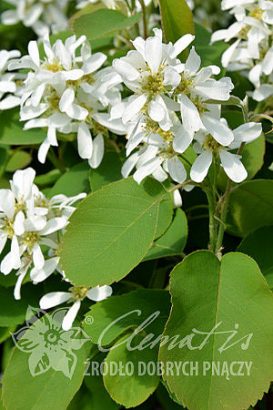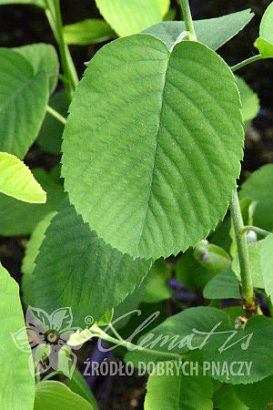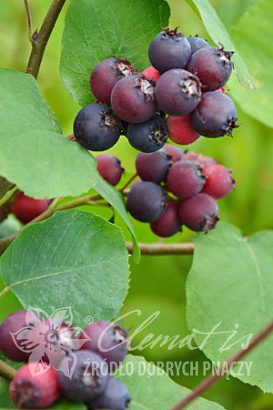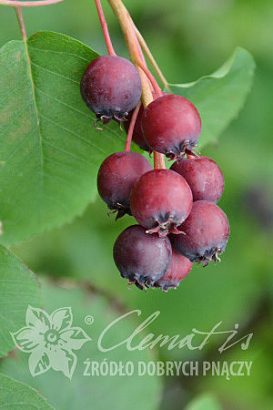Amelanchier alnifolia ‘Honeywood’
Saskatoon serviceberry 'Honeywood'| 装饰形式 | leaves, flowers, edible fruits |
|---|---|
| 花色 | white |
| 花期 | IV, V |
| 年生长量 | 0.5 m |
| 种植方位 | sun, 3/4 sun, 1/2 sun |
| 耐寒区 | Zones 3 - 8 |
| 1m2的密度 | 1 |
| 常绿植物 | no |
A valuable, ornamental deciduous shrub yielding tasty fruit. Resistant to freeze and springtime frost. Flowers and yields fruit early. Recommended for house gardens and park settings.
WHAT IT LOOKS LIKE: Leaves ovate, dark green, turn spectacular orange-red colour in autumn. Flowers white, gathered in inflorescences, bloom in IV-V. Round fruits, 16 cm across are gathered in bunches; fruit is edible and nutritious, juicy and sweet. Their colour varies from deep red to dark blue-black, with a waxy coating at the mature stage; ripening in VI–VII. The fruit is borne from the second year after planting. The fruit is ripe in the second half of June and is favoured by many birds.
HOW IT GROWS: A large shrub of upright shoots. It reaches 5 m height and is a slow grower gaining 0.5 m annually.
WHERE TO PLANT: It grows and yields fruits best in sunny sites. Tolerates moderate, well-drained soil of neutral or slightly acidic pH. A healthy, robust cultivar, rarely subject to pest. Highly frost hardy (zone 3–8).
HOW TO PLANT AND MAINTAIN: Before planting immerse the plant container in water for 10-30 min. Place the root ball in a 60 x 60 x 60 cm hole with a 10 cm layer of well-rotten manure. Fill the hole with fertile compost soil. Flatten the earth around the plant and cover with bark mulch. Place the root ball as deep as it was in the container, one plant per 1 m². Fertilize from April and water adequately during growing season. The shrub does not require regular pruning. A light pruning can be performed once the plant thickens after a couple of seasons. Excessive pruning limits the fruitification.
HOW TO APPLY: The cultivar is particularly useful in house gardens and park settings. It is suitable for creating high, ungroomed hedgerows. The fruit may be eaten raw or processed. They have health-promoting properties, are rich in vitamins, polyphenols, mineral salts, carotenoids and fibre; they have a high antioxidant capacity.
ORIGIN: Saskatchewan, Canada. Introduced for cultivation in 1973.










